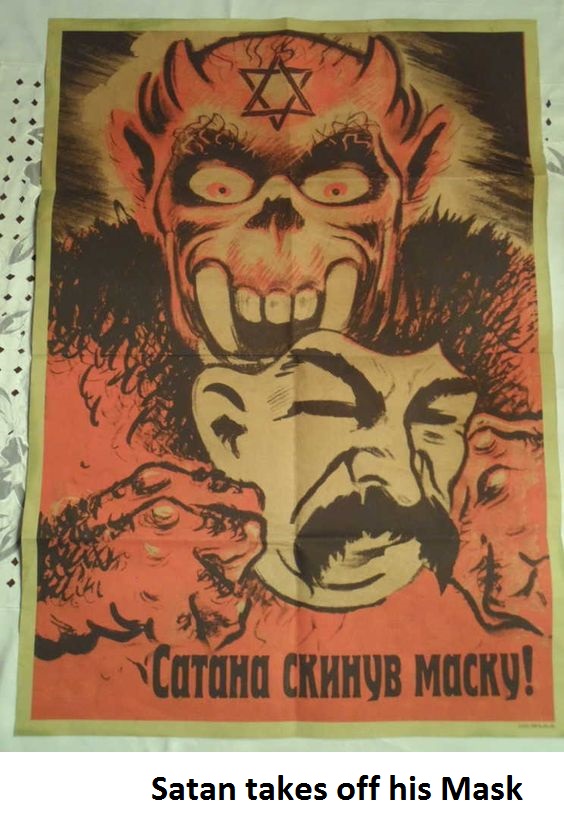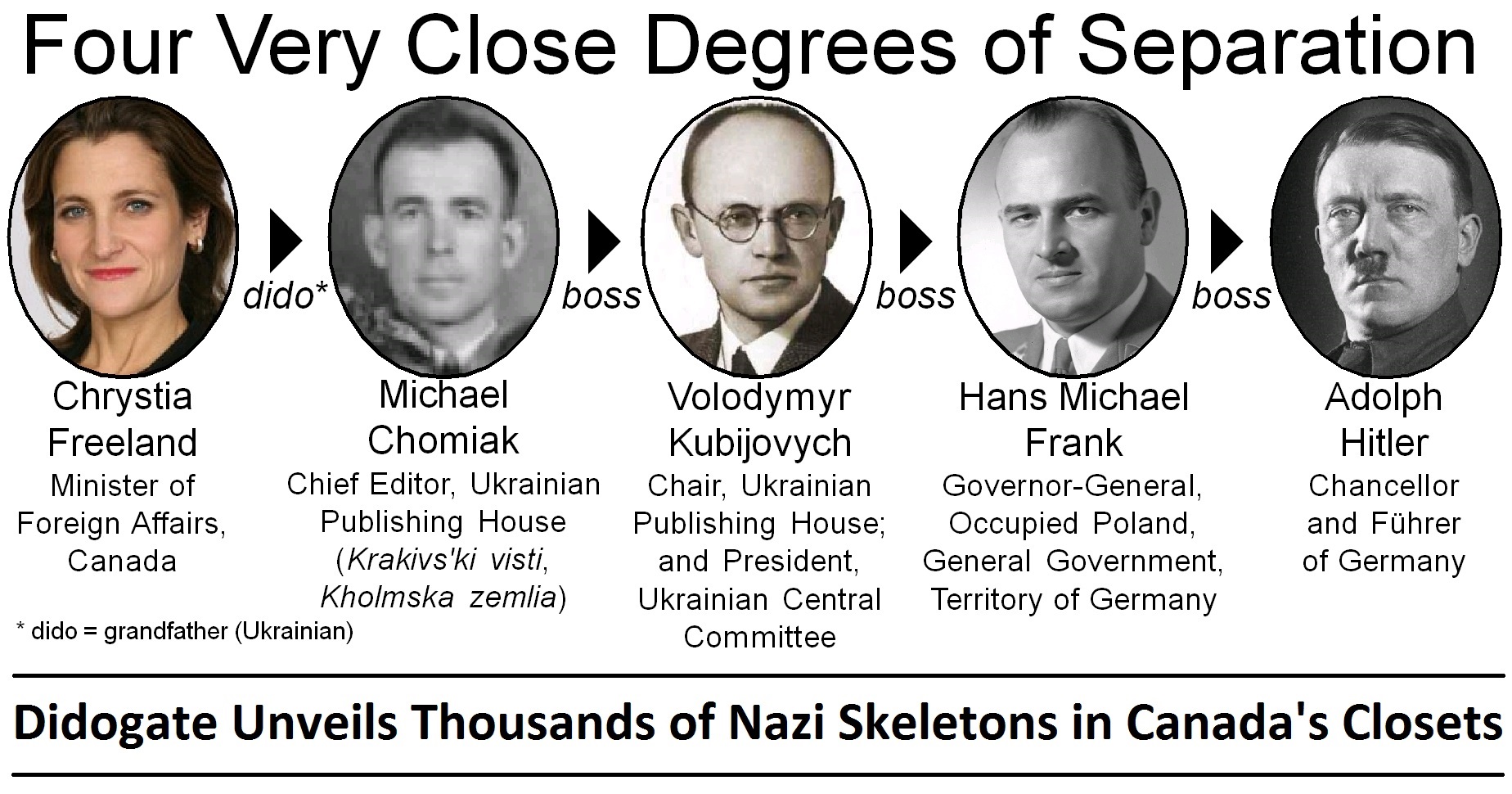
Minister Freeland's Grandfather,
Fake News,
|
|
|
By Richard Sanders, editor, Press for Conversion! magazine of the Coalition to Oppose the Arms Trade, March 22, 2017 "It takes a village to raise a Nazi" (old African proverb, slightly modified) |
|
|
1-
Introduction 2 - The Liberal Government's Warm Embrace of Ukraine's Nazi Collaborators 3 - Historical Amnesia and the Blinding Effects of Propaganda 4 - The Nazis as Victims? Sure, just Blame the Russians! 5 - Canada needs Truth and Reconciliation, not Denials and Obfuscation 6 - Historical Denial among Canada's ultranationalist Ukrainians 7 - Michael Chomiak, The Ukrainian Central Committee and its Nazi Newspapers 8 - Aryanisation and the "Mighty Wurlitzer"9 - The Ukrainian Canadian Congress and its Fascist Roots10 - Getting them Early: Building the ultraNationalist Cause among Children and Youth 11 - The Freeland-Chomiak Parallels in Advocacy Journalism 12 - Was Freeland an "Accidental Journalist," or Groomed for the Job? 13 - In 1989, Freeland was Declared an "Enemy of the Soviet State" 14 - A Chomiak-Freeland Fixation on Jewish Oligarchs running the Kremlin 15 - Freeland's Kremlin-Oligarch Theory goes Global with Jewish Plutarchetype 16 - Institutionalised Confidence Scams: An Open Conspiracy of Oligarchs, Politicians and Journalists 17 - Escaping the War Racket starts with Seeing the Elephant 18 - Just Following Orders? Which Orders? 19 - Is there a Bear in the Room? Kill it! 20 - The Collective Care and Feeding of Russophobia 21 - The Need for Truth and Reconciliation
If you appreciate the work that went into this research, please
subscribe &/or donate.
You can mail this
coupon
to COAT, or use the
Paypal link
on our homepage. Subscription prices:
Captive
Canada: This issue (#68) deals with the mass internment of Ukrainian Canadians, this community's left-right split and the mainstream racist, xenophobic anti-communism of progressive "Social Gospellers" (like the CCF's J.S. Woodsworth) who were so captivated by their false beliefs that they carried out the genocide of First Nations and turned a blind eye to government repression during the 20th-century "Red Scare." The main thesis is captured
here: |
Part 17 In his post-retirement speeches and writings, Smedley Butler made some blunt and shocking confessions. He had faced with great honesty the ugly truth about his own deep complicity in many unjust American wars. To atone for this personal guilt, Butler tried to make amends by revealing to the public what he knew about state crimes that he had helped commit. "I spent most of my time being a high class muscle-man for Big Business, for Wall Street and for the Bankers," said Butler. "In short, I was a racketeer, a gangster for capitalism."[i] But, despite his crimes, Butler is now seen as great hero by many antiwar activists who respect the integrity with which he reconciled his personal complicity in war by bluntly speaking truth to power.
"War is a racket. It always has been.
"It is possibly the oldest, easily the most profitable, surely the most vicious. ... "A racket is best described, I believe, as something that is not what it seems to the majority of the people. Only a small 'inside' group knows what it is about. It is conducted for the benefit of the very few, at the expense of the very many. Out of war a few people make huge fortunes."[ii] Butler's use of "racketeering" jargon to describe war is jarring, and his use of terminology from the debased world of organised crime to describe the respectable, glamorous world of politicians, bankers and military elites, was genius. Butler said "There isn't a trick in the racketeering bag that the military gang is blind to. It has its 'finger men' to point out enemies, its 'muscle men' to destroy enemies, its 'brain men' to plan war preparations, and a 'Big Boss' Super-Nationalistic-Capitalism."[iii]
"intelligence men further justify their jobs by spy work on radical gatherings, by attending public forums in an attempt to detect political or economic heresy, by keeping tabs on various suspects, and by smelling out what they consider to be subversive activities everywhere.... Radical meetings are attended, notes taken, speakers listed, and as many of the audience identified as possible."[iv] As to exactly which "radical" heretics were pointed out by these "finger men," Butler then cited a 1933 newspaper article revealing that the US "Secret Service" had used young officers in training to infiltrate campus and city groups to gather "information regarding the activity of communists."[v]
The war-profiteering racket described by
Butler is so vast and so institutionalised that it cannot possibly be kept a
secret. While the minute details of closed-door meetings between
conspirators are hidden from public view, war requires huge programs
of collaboration between vast institutions that can only be hidden in plain
sight. To do this requires concealing the truth behind deceitful veils of
words, cleverly wrapping them in blind-eye ideologies, and hiding them
within the niceties of fine-sounding propaganda. The plutocracy-building
joint efforts of corporations and the military, as Butler well knew, also
involves the active participation of other large social institutions, such
as the churches,
the government and the mass media.
The same was true of course in WWII. With regards
to the Ukrainian churches, both Ukrainian Catholic and Orthodox hierarchy
avidly supported recruitment for the Waffen SS Galicia Division. They
even lobbied for and received special rights from the Nazis to have their
chaplains sent out with the troops. (Note the Waffen SS Galician
symbol, a lion with three crowns, in photo with Bishop at left.) "Beautiful ideals were painted for our boys who were sent out to die. This was the 'war to end all wars.' This was the 'war to make the world safe for democracy.' No one mentioned to them, as they marched away, that their going and their dying would mean huge war profits. No one told these American soldiers that they might be shot down by bullets made by their own brothers here. No one told them that the ships on which they were going to cross might be torpedoed by submarines built with United States patents. They were just told it was to be a 'glorious adventure.'" The "war to end all wars" line, which spread like wildfire through the print media, was the brainchild of H.G. Wells. It evolved from his August 1914 propaganda articles in British newspapers.[vii] The catchy line about making "the world safe for democracy" came from Woodrow Wilson's April 2, 1917, speech to Congress in which he sought a Declaration of War against Germany. Butler, as usual, drew the attention back to one of his favourite topics, the duplicity of war profiteers.
Propagandists, whether writing newspaper articles, history textbooks, political speeches, religious sermons, business reports or any number of other types of sheer fiction, can conveniently leave out disturbing, elephant-sized aspects of the truth. With the stroke of a pen (or a magical wand), these same propagandists also have the power to make nonexistent elephants seem to appear out of thin air. In this case, although there is no huge beast in the room, people believe they can see one. This propaganda trick is especially useful in the creation of national enemies and the triggering of wars using that particular genre of provocative fake news events which I have referred to elsewhere as "war pretext incidents."[ix]
But social actors ‑ even the propagandists themselves ‑ can easily be victimised by social illusions. Because many of them actually believe that certain falsehoods are true, they become unwitting accomplices in the spread of misinformation. These unsuspecting marks may actually become so good at bringing others into the belief that they are richly rewarded by the institutions which profit from the scam. Over the millennia, these institutions ‑ populated largely by true believers ‑ have evolved like living species. This has required the development of cultural mechanisms for self-perpetuation. To ensure the multi-generational survival of institutions, individuals within them devise processes to help organisations to adapt to social changes. One such institutional survival mechanism ensures that the system's best propagandists are promoted and encouraged in their work. These individuals rise to the top in such professions as journalism, politics, law and business. Propaganda elites also have the almost magical ability to walk through walls. They can move between these powerful social institutions in a flash, jumping effortlessly from one career to another. These transitions are eased by the fact that the spheres of discourse within the upper echelons of each siloed profession, share some of the same basic propaganda themes. For much of the last 100 years, western propagandists in all professions have shared a dominant underlying motif, anticommunism. For much of that century, this mass paranoia was closely linked to another common social phobia, antiSemitism. Certain communities have a long historical tradition associated with such social phobias. In his article "Organized Anti-Semitism in Contemporary Ukraine," Swedish-American historian Per Anders Rudling explained that
Rudling, who earned his PhD at the University of Alberta, goes on to say that in his study of this "under-researched" phenomenon among some Ukrainians "[o]ne of the central themes in the anti-Semitic literature I have analyzed is the equating of communists, oligarchs, mass murderers and sexual predators with Jews."[xv]
|
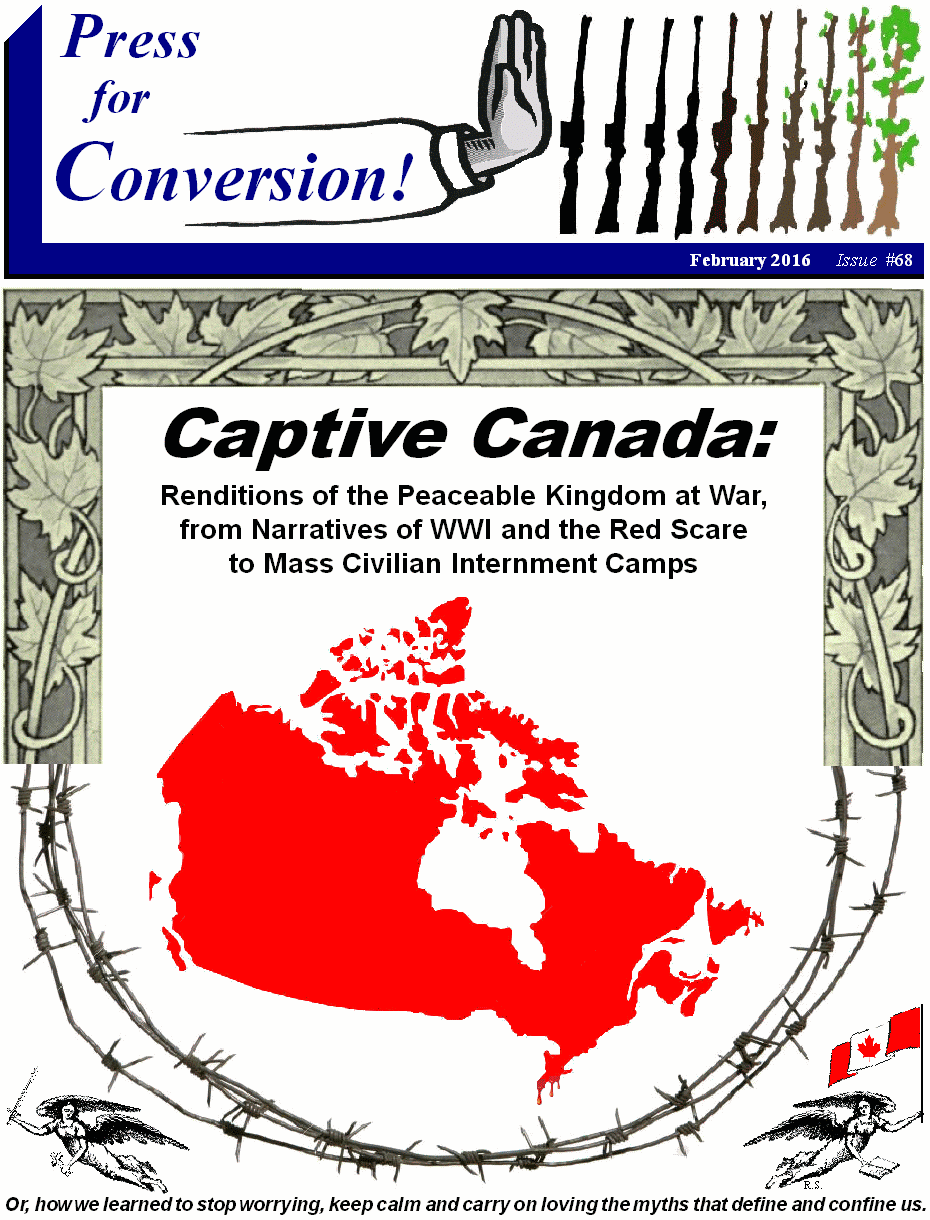
.jpg) Butler's book, War is a Racket, is a
classic e
Butler's book, War is a Racket, is a
classic e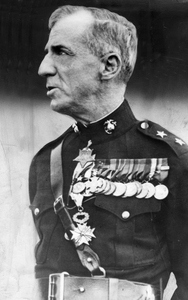 One
the matter of "'finger men' to point out enemies," it is interesting to note
who Butler says they targeted. In another article, Butler talked about
"military intelligence" saying "[t]he domestic brand of M.I. is mainly
unadulterated Red hunting." After naming well-known ultra-right individuals,
organisations and a newspaper magnate, William Randolph Hearst, Butler said
One
the matter of "'finger men' to point out enemies," it is interesting to note
who Butler says they targeted. In another article, Butler talked about
"military intelligence" saying "[t]he domestic brand of M.I. is mainly
unadulterated Red hunting." After naming well-known ultra-right individuals,
organisations and a newspaper magnate, William Randolph Hearst, Butler said 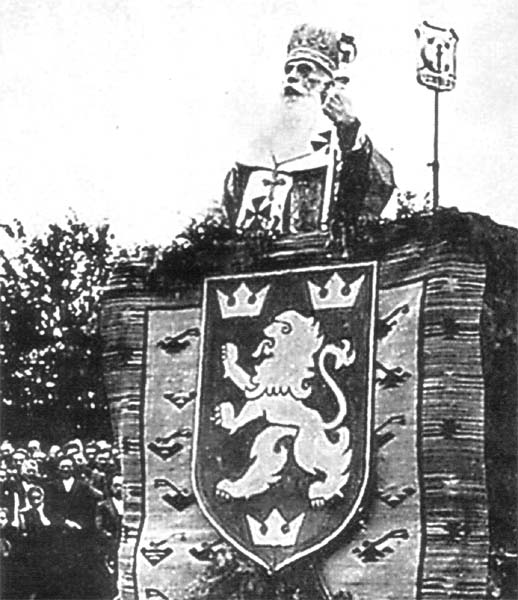 "In
the [First] World War, we used propaganda to make the boys accept
conscription. They were made to feel ashamed if they didn't join the army.
"In
the [First] World War, we used propaganda to make the boys accept
conscription. They were made to feel ashamed if they didn't join the army.
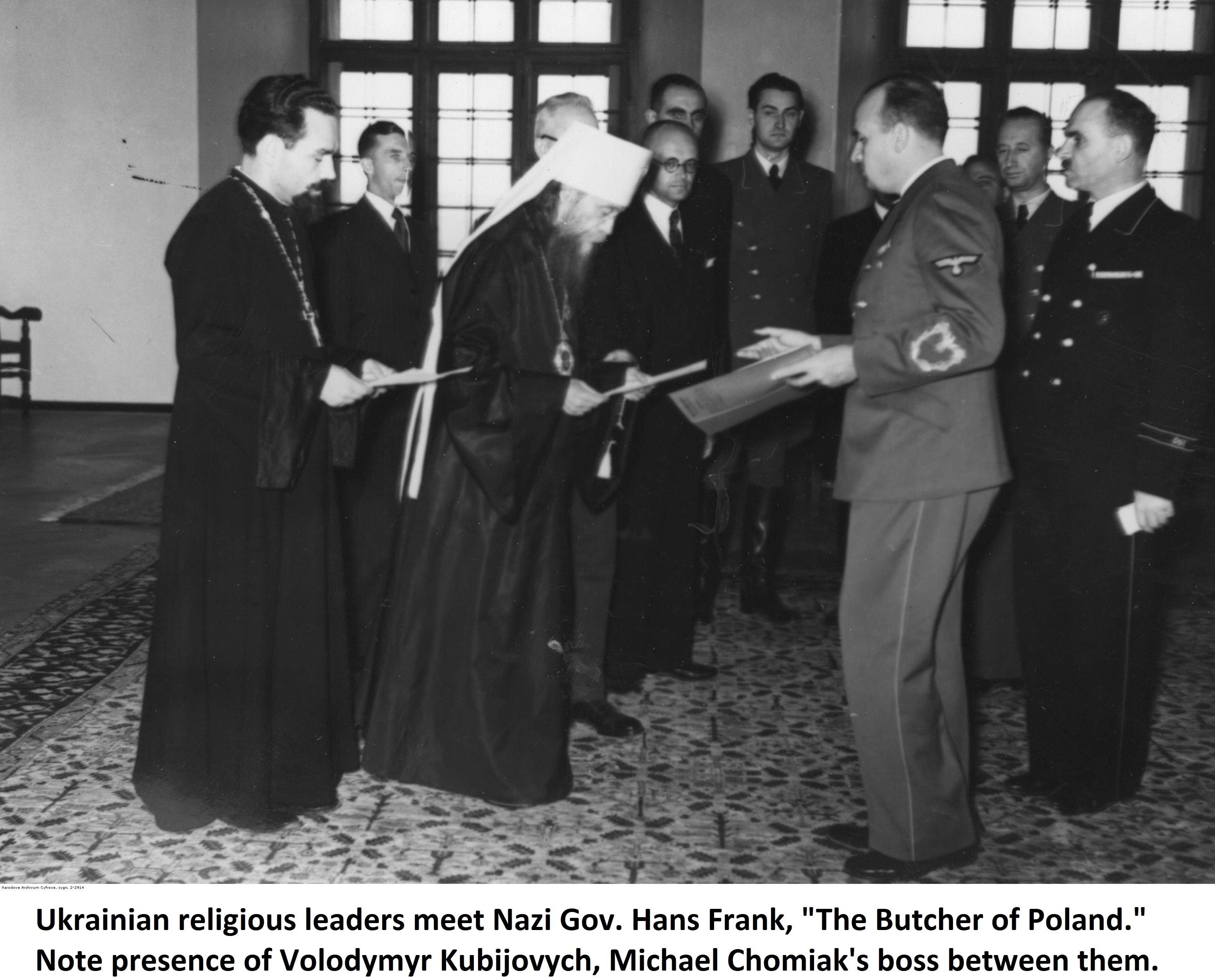 To critique the role of
government and media propaganda in promoting war, Butler referenced
deceptive WWI catchphrases used to lure men to enlist :
To critique the role of
government and media propaganda in promoting war, Butler referenced
deceptive WWI catchphrases used to lure men to enlist :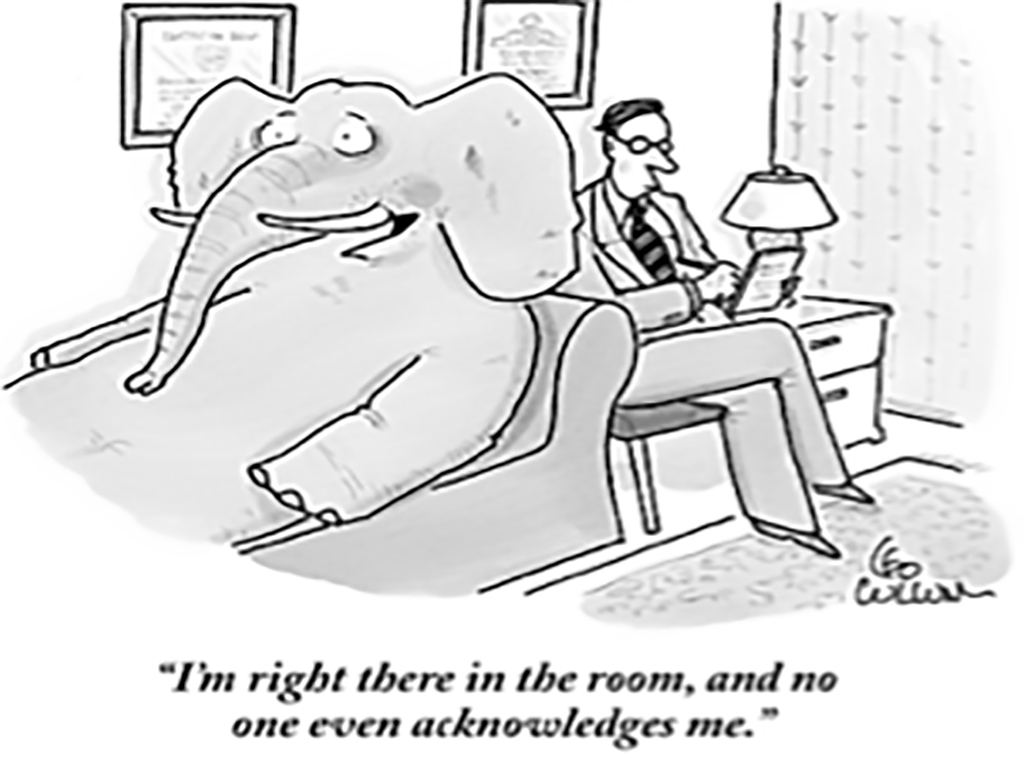 The nightmare of war is indeed a dream come
true for those who profit from the sale of weapons, the theft of land, the
plunder of resources, and the murderous eradication of enemies.
Camouflaging these crimes as if they are noble achievements requires the
deftness of a social magician who can hide an elephant in a crowded room,
or, as the Russians would have it, an elephant in the museum.
The nightmare of war is indeed a dream come
true for those who profit from the sale of weapons, the theft of land, the
plunder of resources, and the murderous eradication of enemies.
Camouflaging these crimes as if they are noble achievements requires the
deftness of a social magician who can hide an elephant in a crowded room,
or, as the Russians would have it, an elephant in the museum.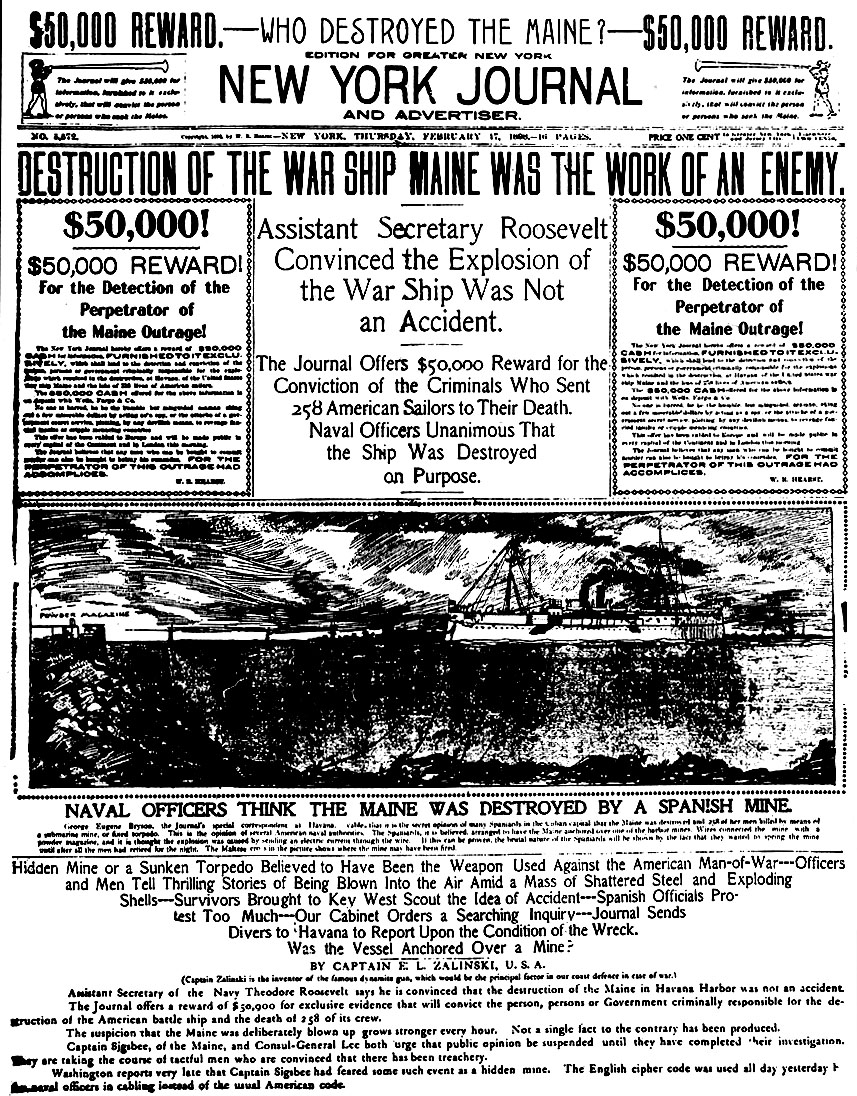 Enamoured by the corporate media's fixation
on fake news since the 2016 US presidential election, some mainstream
propaganda junkies seem to have forgotten the mighty Wurlitzer's long
history of cranking out "fake news." Has some huge black hole absorbed the
media's guilt in spreading phoney weapons-of-mass-destruction stories that
launched the Iraq War in 2003?
Enamoured by the corporate media's fixation
on fake news since the 2016 US presidential election, some mainstream
propaganda junkies seem to have forgotten the mighty Wurlitzer's long
history of cranking out "fake news." Has some huge black hole absorbed the
media's guilt in spreading phoney weapons-of-mass-destruction stories that
launched the Iraq War in 2003?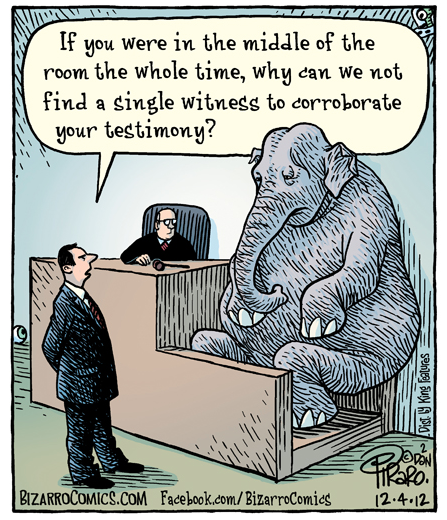 Those who literally practice the stage
craft of hocus pocus are loath to reveal the conjuring secrets of their
profitable profession. They must guard sleight-of-hand tricks in order to
retain the illusory power of their performance and to prevent competitors
from repeating the illusion in their own shows. This however is where
conjurers and propagandists part company. The propagandist's whole purpose
is to spread their delusion as far and wide as possible. The trick for them
is to package the deception into symbolic memes, narratives and myths that
are simple enough for others to repeat. That way, everyone who is subjected
to the trick not only becomes a dupe of the delusion, they also become
accessories in its dissemination. Once planted in the mainstream media, a
good propaganda story can take on a life of its own: spreading, growing,
mutating and evolving to deal with counter-propaganda.
Those who literally practice the stage
craft of hocus pocus are loath to reveal the conjuring secrets of their
profitable profession. They must guard sleight-of-hand tricks in order to
retain the illusory power of their performance and to prevent competitors
from repeating the illusion in their own shows. This however is where
conjurers and propagandists part company. The propagandist's whole purpose
is to spread their delusion as far and wide as possible. The trick for them
is to package the deception into symbolic memes, narratives and myths that
are simple enough for others to repeat. That way, everyone who is subjected
to the trick not only becomes a dupe of the delusion, they also become
accessories in its dissemination. Once planted in the mainstream media, a
good propaganda story can take on a life of its own: spreading, growing,
mutating and evolving to deal with counter-propaganda.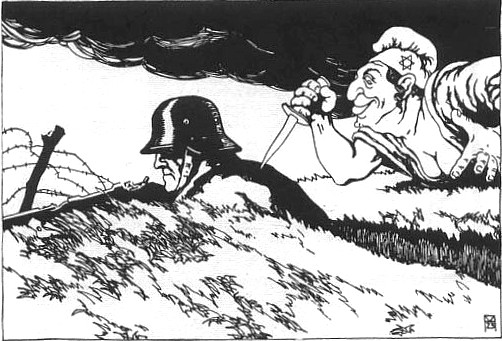 "From the perspective of the anti-Semites,
Jewish domination of Ukraine began in the Middle Ages and [has] lasted until
today. The Jews have ruled through 'Jewish' tsars, Judeo-Communists,
Judeo-Nazis and the current, 'a-national' Jewish oligarchs and criminals,
bent on destroying Ukraine and the Slavic world. The anti-Semites weave
together an overall picture where
"From the perspective of the anti-Semites,
Jewish domination of Ukraine began in the Middle Ages and [has] lasted until
today. The Jews have ruled through 'Jewish' tsars, Judeo-Communists,
Judeo-Nazis and the current, 'a-national' Jewish oligarchs and criminals,
bent on destroying Ukraine and the Slavic world. The anti-Semites weave
together an overall picture where